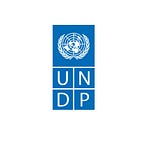Restoring Livelihoods: Yobe State farmers receive farming supplies ahead of the anticipated rain season
The crisis in Northeast Nigeria has disrupted the region’s productive capacities, especially in agriculture. Since 2009, hundreds of displaced farmers were forced to abandon their homes and farmlands, leaving families critically dependent on humanitarian aid. Besides the prolonged insecurity, communities have experienced climatic variability that has affected lives and food production. The pressure on natural resources is not just limited to the Lake Chad but also the lands for farming, resulting from widespread deforestation that has severely impacted on soil fertility.
Yobe borders four Nigerian States as well as the Diffa and Zinder Regions in the Republic of Niger. The state is one of the states (including Adamawa, Borno) in Northeast Nigeria targeted by United Nations Development Programme (UNDP) interventions through the Regional Stabilization Facility (RSF) for the Lake Chad Basin region, having cleared of Boko Haram and, other armed groups. Yobe is an agrarian State with deposits of several mineral resources, making it potentially viable for agricultural and mining activities. Cattle herding and farming are the chief occupations of the majority of the population found in this region. However, despite the vast wealth of natural resources, communities in Yobe remain vulnerable to the impact of climate change and, sporadic infiltration and insecurity.
By supporting the distribution of agricultural inputs at the household level, UNDP underscores need to revitalize crisis-affected communities, including support to efforts that contribute to boosting local food production. As part of a joint commitment to renew local economies and restoration of livelihoods, UNDP and the Government of Yobe State are conducting a state-wide distribution of agricultural inputs ahead of the anticipated rain season.
The exercise, which targets approximately 2000 households in Yobe, kicked off in Buni Yadi in the Gujab Local Government Area (LGA) where communities most affected by the crisis that has led to the loss of livelihoods and food insecurity. The material provided, including farming implements, fertilisers, and seeds, will enhance agricultural output. Eligible recipients will also receive farming technical advice and training to ensure that they can maximize their agricultural input and market some of the produce for additional income.
The distribution of the farming implements including seeds, fertilizers, insecticides, herbicides, and knapsack sprayers, will go a long way in supporting the farming activities in the insurgency ravaged areas of the state. These will equally increase the yields despite the challenges of the COVID-19 pandemic.
- Dr Abubakar Iliya, Commissioner for Humanitarian Affairs on behalf of the State Governor.
Access to agricultural inputs and extension services is significantly hampered due to the insecurity crisis in Northeast Nigeria. As a result, in a loss of livelihoods, a decline in food security has increased hardship for thousands of people. The annual exercise launched in July 2019, is part of the rapid re-establishment of essential services, that can complement life-saving interventions under the Regional Stabilization Facility. By creating sustainable integrated solutions at the community level, the programme aims to stabilize affected lives, as a foundation for longer-term recovery and development.
One of the essential elements of stabilizing the region involves revitalizing livelihoods and the local economy. Agriculture-based livelihood support, including rainy seasons agriculture inputs, will help vulnerable communities to improve their food security. Further distributions of agricultural inputs are also scheduled in other parts of the state as well as in Borno, Adamawa states through August 2020.
- Mizuho Yokoi, UNDP Nigeria’s Head of Stabilization.
Established in 2019, the Regional Stabilization Facility for Lake Chad — Nigeria window, is a rapid response, towards the immediate stabilization of the region. Through this programme, UNDP is supporting efforts aimed at resuscitation of food production in conflict-affected communities by providing key inputs to family communities. Funded by the European Union, Germany, and the United Kingdom, UNDP is working in close collaboration with the state governments to deliver three main outputs: improved community safety and security; re-establishment and functioning of essential infrastructure and basic services; and, availability of livelihood opportunities at the household level.
Story by: Amalachukwu Ibeneme, Communications Assoiciate
Edited by Ngele Ali, Communications Specialist
